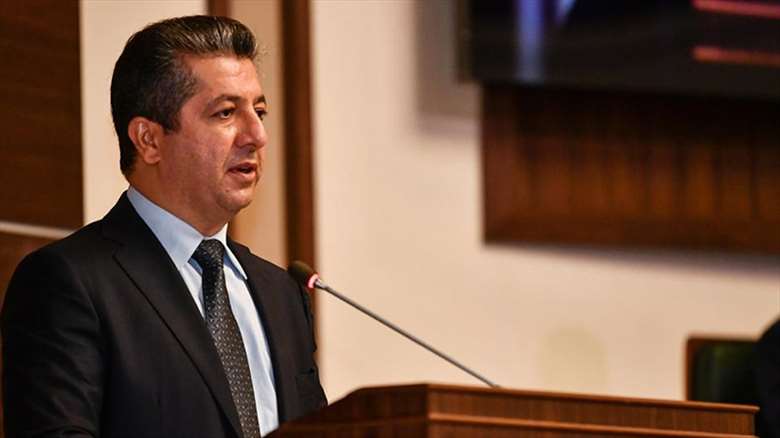PM Barzani presents cabinet's work to the Kurdistan Parliament, discusses reform package development

ERBIL (Kurdistan 24) – Prime Minister Masrour Barzani shed light on several critical issues during a parliamentary session on Monday. In particular, the discussion focused on the financial and administrative reform process; the reform law; plans to confront the coronavirus and ensuing financial crisis; and service and strategic projects in agriculture, industry, roads and electricity.
During the session, which was attended by Deputy Prime Minister Qubad Talabani and a number of concerned ministers, the Prime Minister presented a report on the progress of the reform law that has been undertaken by his cabinet.
The Prime Minister stressed that reform is an ongoing process, which will not be completed overnight. It has started in many areas, he said, and will affect a variety of sectors, both financially and administratively.
“Despite the health and economic crises facing the Kurdistan Region, Iraq and the world,” Barzani stated, “with the decline in global oil prices, and Baghdad's refusal to send the region's share of oil revenues, that did not stop the implementation of strategic projects in agriculture, industry, roads, and electricity.”
“The Kurdistan Regional Government (KRG) allocated 28 billion IQD (Iraqi Dinars) to confront coronavirus,” Barzani said, while he confirmed the government’s commitment to review the tax system, as well as fight bureaucratic routine to improve job performance in government departments.
In addition, border security is to be bolstered, with border crossings and airports linked through an electronic system to enhance supervision, quality control, and transparency.
Barzani also discussed the KRG’s progress in carrying out electricity projects that were recently launched and have contributed to raising production to 3,700 megawatts, providing electricity for a period that exceeds 20 hours per day for the public. In addition, the government has implemented a number of health projects, along with food processing projects, and it has undertaken new road construction.
Barzani stressed that the KRG will not tolerate any attempts to disrupt the security of the region.
The region is “aware of the perpetrators of the rocket attacks that took place recently on Erbil, and it has shared that information with Baghdad,” he stated, as he affirmed, “The Kurdistan Region is well prepared to respond to those attacks. It will not submit to any form of threats, and it will not allow anyone to dare to attack Kurdistan Region.”
The Prime Minister explained that discussions with the federal government are still ongoing regarding the disputed territories, as he confirmed his rejection of any demographic changes in those areas, using the policy of Arabization and displacing the Kurdish and Turkmen populations from their villages and lands.
Barzani also noted that Erbil and Baghdad had previously agreed to establish six joint coordination centers between the Peshmerga forces and the Iraqi army in Diyala, Makhmour, Mosul, Kirkuk, Erbil and Baghdad. However, the federal government has not yet issued any decision to initiate the centers, which are aimed at curbing terrorist activities.
"We are continuing our talks with Baghdad,” he explained. “There are those who say that the Kurdistan Region’s problem with Baghdad is limited to the budget and salaries. But this is not true. There are major outstanding issues, most notably the disputed areas and the Peshmerga file.”
He also spoke of the KRG’s gender equality policy, describing it as “strong,” as he explained, “We will stand against any violation of human rights, female, and male alike, including our legal stance against any such violations, especially against women.”
“The Kurdistan Region is the most successful model in Iraq, despite the crises,” Barzani affirmed, as he stressed that there is a window of opportunity to solve the outstanding issues between Baghdad and Erbil, which must be exploited and not lost.
“The settlement of problems under the constitution is an important factor for stability, and it is in the interest of all Iraqis,” he emphasized.
The prime minister, deputy prime minister and ministers subsequently answered parliamentarians’ questions and listened to their comments on various issues of importance to the people of the Kurdistan Region.
Editing by Laurie Mylroie
